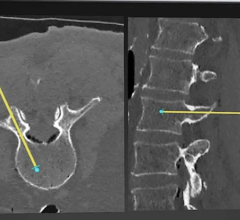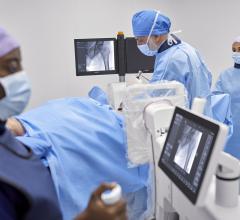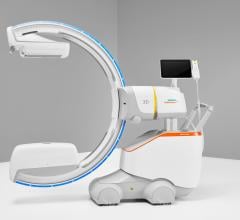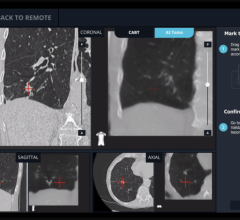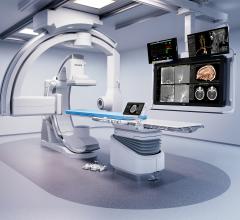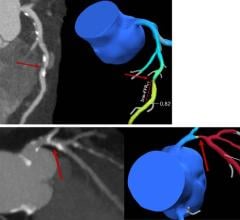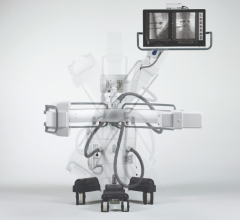
March 4, 2011 – A new generation of a mobile C-arm has been launched, offering outstanding imaging and a liquid cooling system to allow use over an almost unlimited period of time. The Vision RFD mobile C-arm, from Ziehm, is an alternative to fixed installations in hybrid operating rooms (ORs), especially for hospitals with space and budgetary constraints. The hybrid edition features innovative flat-panel technology and delivers distortion-free images with more than 16,000 shades of gray and a resolution of 1.5 x 1.5 k pixels. The detector is not affected by magnetic fields so it also produces distortion-free, detail-rich images when close to magnetic resonance (MR) scanners. The square display format creates a significantly larger visible area with up to 60 percent more information per X-ray than conventional image intensifiers. The high-power hybrid edition is tailored exactly to hybrid OR requirements. The compact, 20 kW monoblock generator with a rotating anode offers a variable pulse width between 4 and 50 ms for clear images. With up to 25 images-per-second, the hybrid edition also produces high-quality X-rays of moving objects, such as a beating heart. Its active liquid cooling system keeps the operating temperature steady, preventing the generator from overheating and disrupting imaging. The injector interface synchronizes injection of contrast media with the imaging process. The Remote Vision Center features an operator panel and touchscreen directly at the OR table so the entire C-arm can be controlled from a sterile environment. Other highlights include an interface to ceiling or wall-mounted displays. It also comes with the SmartVascular software, which enables surgeons to create a digital subtraction angiography (DSA) at any time without having to use the touchscreen. It automates all process steps from DSA to roadmapping, allowing vascular procedures to be planned with minimum amounts of contrast media and shorter fluoroscopy times. The hybrid edition smoothes the transition from conventional to minimally invasive surgery. It increases reliability by enabling surgeons to check progress during procedures, which in turn reduces the risk of follow-up operations and speeds patient recovery. For more information: www.ziehm.com

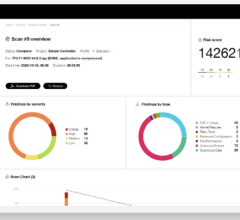
 June 19, 2024
June 19, 2024 
